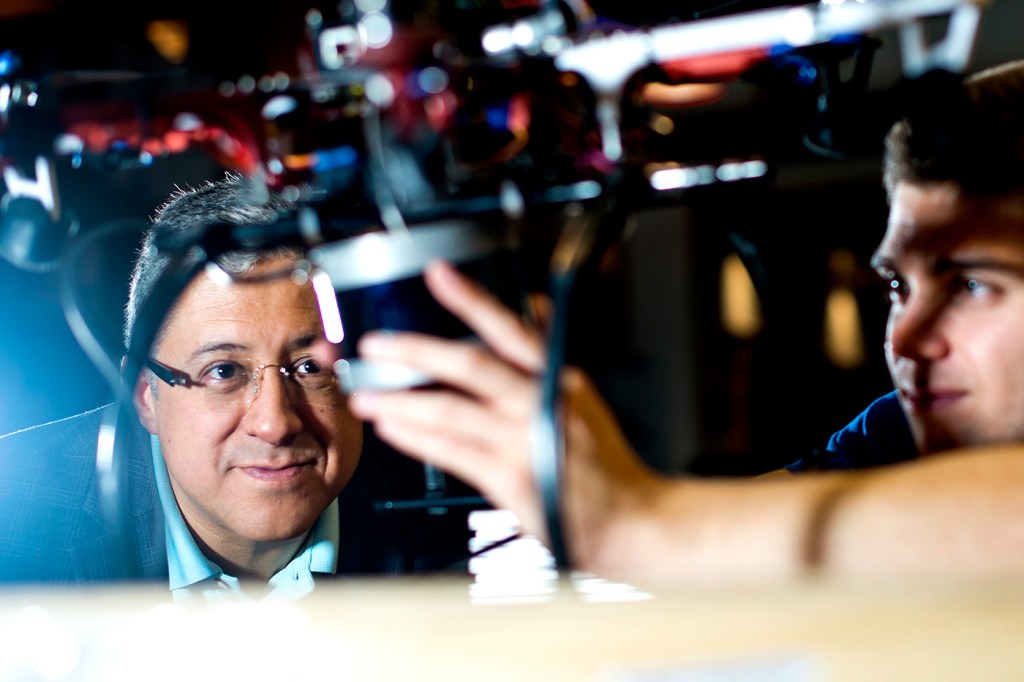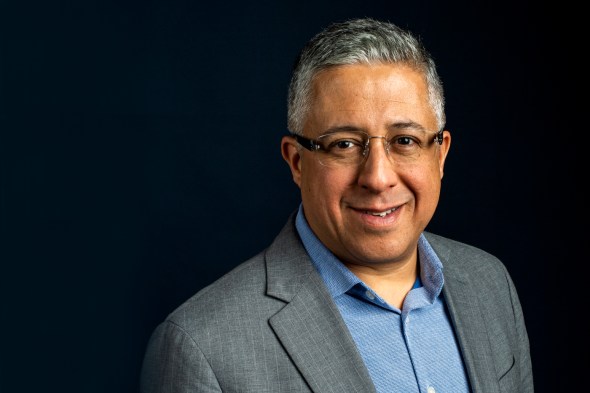Roboticist Taskin Padir has become Northeastern’s first Amazon Scholar

Taskin Padir, associate professor in computer and electrical engineering, is Northeastern University’s first Amazon Scholar, and he is bringing his human-centered approach to robotics to the company’s fleet of drivers.
The Amazon Scholar program partners university professors from around the world with Amazon talent to work on large-scale and high-impact projects in the professor’s field of expertise. Professors get access to Amazon’s resources and an opportunity to test and apply their research in real-world contexts, while assisting Amazon with solving challenges in its worldwide operations.

Taskin Padir, associate professor in electrical and computer engineering, founded Northeastern’s Institute for Experiential Robotics. Photo by Matthew Modoono/Northeastern University
At the core of Padir’s work with Northeastern’s Institute for Experiential Robotics, which he founded, is the concept of shared autonomy between human workers and robots. While there have been concerns among workers in various industries that robotic assistance could make them obsolete, Padir’s work with the seafood processing industry in Massachusetts is proof that the human element is not going away any time soon.
“We will always need humans in these challenging environments and challenging tasks,” Padir said. “The idea here is what can be done in the next couple of years, what can be done in the next five years, and what can be done in the next decade or beyond so that humans have better jobs, so that humans are being more successful in their jobs?”
It’s an approach he hopes to bring to Amazon Robotics in North Reading and Westborough, Massachusetts, where he’ll be working side by side with Tye Brady, chief technologist, to find innovative ways, through robotics, to improve last-mile delivery for Amazon’s drivers.
“If we can really augment the human drivers’ ability to deliver their packages faster and in a more pleasant way, that’s a win-win situation for everybody, while you are getting your packages on time and even sometimes sooner than you expect them,” Padir said.
“There are a lot of human workers, so my role at Amazon, what I will be working on, is innovating new technologies, new solutions, that provide human workers, Amazon employees, and customers with a better experience in this whole complex system.”
During the two years he’ll spend as an Amazon Scholar, Padir will continue working in the classrooms and labs at Northeastern. In that way, the program provides a rich learning opportunity both for him and his students.
“Keeping my two concurrent positions, I’ll be able to bring some of those [lessons] back to the lab and have Northeastern students start looking at, ‘Wait a minute, we’ve been looking at this problem from a totally different perspective, so maybe there’s a different solution,’” Padir said.
Both at Amazon and Northeastern, Padir is focused on “the experience:” the experience of Amazon workers and customers, of students and professors, and of seafood processors and doctors, the latter two employment areas that are experiencing staffing shortages. Robotics have the potential to make “a societal impact,” Padir said, whether it’s in a hospital or the last mile of a delivery run.
“That excites me a bit, and it takes a team effort, it takes partnerships, and this [program] is one way of kicking that off,” Padir said. “I plan to be in this business, in robotics research, for a couple decades more, and if you can provide a solution one project at a time, one use case at a time, that’s success.”
For media inquiries, please contact media@northeastern.edu.






